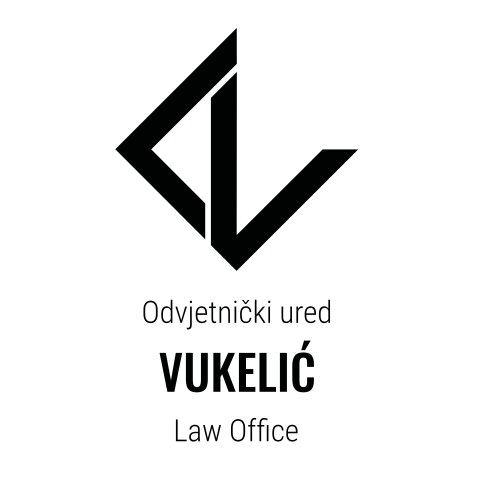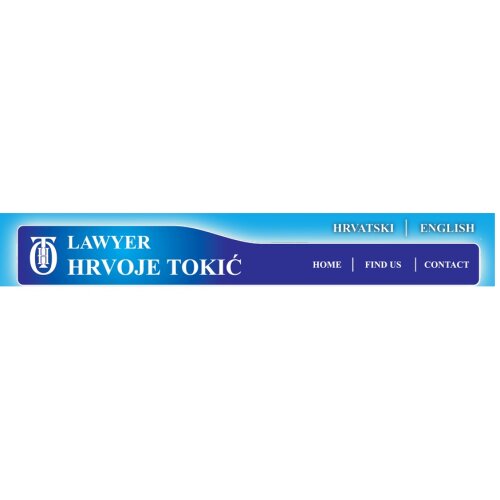Best International Trade Law Lawyers in Croatia
Share your needs with us, get contacted by law firms.
Free. Takes 2 min.
Or refine your search by selecting a city:
List of the best lawyers in Croatia
About International Trade Law in Croatia
International Trade Law in Croatia encompasses a framework of regulations and treaties that govern the import and export of goods and services between Croatia and other countries. As a European Union member, Croatia adheres to EU trade laws and policies, which means businesses must navigate both EU-wide regulations and local Croatian laws. This legal field focuses on issues such as tariffs, customs, trade agreements, and cross-border commerce. Croatia's geographical position and EU membership make it a significant player in regional trade, necessitating a comprehensive understanding of both domestic and international legal requirements.
Why You May Need a Lawyer
Individuals and companies might find themselves in need of legal assistance in International Trade Law for several reasons:
1. **Customs and Tariff Issues:** Navigating complex customs regulations and tariff classifications can require specialized knowledge to avoid legal pitfalls and financial penalties.
2. **Trade Compliance:** Ensuring compliance with both EU and local Croatian trade regulations, including export controls and sanctions, is crucial for lawful operations.
3. **Contract Negotiations:** Drafting and negotiating international sales contracts, distribution agreements, and other legal documents require expertise in both national and international law.
4. **Dispute Resolution:** Engaging in international trade often leads to disputes that may require arbitration or litigation to resolve cross-border commercial controversies.
5. **Intellectual Property Protection:** Businesses must safeguard their intellectual property when entering foreign markets, which may involve licensing agreements and trademark registrations.
Local Laws Overview
Key aspects of local laws relevant to International Trade Law in Croatia include:
- **Foreign Exchange:** Croatia's trade policies facilitate foreign currency exchange, but businesses must adhere to specific financial regulations set forth by Croatian law.
- **Consumer Protection:** Laws ensure consumer rights are protected even in cross-border transactions, demanding compliance from foreign and domestic businesses alike.
- **Customs Procedures:** Croatian customs laws align with EU standards, entailing detailed procedures and documentation for import/export activities to optimize the flow of goods.
- **Export Controls and Sanctions:** Croatia enforces EU-imposed sanctions and export controls, particularly concerning sensitive technologies and materials, demanding strict adherence from businesses.
- **Trade Agreements:** With access to numerous EU-negotiated international trade agreements, Croatian businesses must understand the legal ramifications of these agreements on their operations.
Frequently Asked Questions
What documents are necessary for importing goods into Croatia?
Essential documents include a commercial invoice, packing list, bill of lading or airway bill, certificates of origin, and any applicable permits or licenses.
How do tariff classifications impact my business?
Tariff classifications determine the duty rates that apply to imported goods, affecting your cost structure and pricing strategy.
Are there specific Croatian laws I need to be aware of when exporting goods?
Croatia applies EU regulations for exports, including export controls, standards, and intellectual property laws, which must be complied with for legal international trade.
What are the consequences of non-compliance with trade regulations?
Non-compliance can lead to fines, trade restrictions, legal disputes, and damage to your business reputation.
Can trade disputes be resolved in Croatian courts?
Yes, trade disputes can be resolved in Croatian courts or through arbitration, depending on the contract terms and involved parties.
What role do free trade agreements play in Croatian trade law?
Free trade agreements can reduce tariffs, enhance market access, and simplify trade processes, benefiting Croatian businesses in international markets.
Do I need to adapt my business practices when trading with non-EU countries?
Yes, trading with non-EU countries may require compliance with different customs procedures, regulatory standards, and legal requirements.
How can I protect my intellectual property when trading internationally?
Registering your intellectual property in target markets and using enforceable contracts are essential steps to protect your assets.
What is the role of customs brokers in international trade?
Customs brokers assist with clearing goods through customs, ensuring compliance with regulatory requirements, and minimizing delays.
What financial support is available for exporters in Croatia?
The Croatian government and EU provide financial assistance programs, grants, and loans to support businesses expanding into international markets.
Additional Resources
For further assistance, consider contacting the following resources:
- **Croatian Chamber of Commerce:** Offers guidance on export/import processes and trade regulation updates.
- **Ministry of Economy and Sustainable Development:** Provides information on trade policies and governmental support for businesses.
- **Financial Agency (FINA):** Assists with financial services related to international trade operations.
- **European Commission Trade Policy Portal:** Offers comprehensive information on EU trade policies affecting Croatia.
Next Steps
If you require legal assistance in International Trade Law in Croatia, begin by:
1. **Assessing Your Needs:** Determine the specific areas where you require legal guidance, such as contract negotiation or compliance.
2. **Researching Legal Experts:** Look for qualified international trade lawyers or law firms experienced in Croatian and European trade laws.
3. **Consulting Professionals:** Schedule consultations to discuss your situation, gather insights, and understand the potential costs involved.
4. **Reviewing Legal Agreements:** Engage a lawyer to review and draft contracts, ensuring they protect your interests in international transactions.
5. **Monitoring Compliance:** Regularly review your business practices to ensure ongoing compliance with evolving trade regulations in Croatia and the EU.
Lawzana helps you find the best lawyers and law firms in Croatia through a curated and pre-screened list of qualified legal professionals. Our platform offers rankings and detailed profiles of attorneys and law firms, allowing you to compare based on practice areas, including International Trade Law, experience, and client feedback.
Each profile includes a description of the firm's areas of practice, client reviews, team members and partners, year of establishment, spoken languages, office locations, contact information, social media presence, and any published articles or resources. Most firms on our platform speak English and are experienced in both local and international legal matters.
Get a quote from top-rated law firms in Croatia — quickly, securely, and without unnecessary hassle.
Disclaimer:
The information provided on this page is for general informational purposes only and does not constitute legal advice. While we strive to ensure the accuracy and relevance of the content, legal information may change over time, and interpretations of the law can vary. You should always consult with a qualified legal professional for advice specific to your situation.
We disclaim all liability for actions taken or not taken based on the content of this page. If you believe any information is incorrect or outdated, please contact us, and we will review and update it where appropriate.
Browse international trade law law firms by city in Croatia
Refine your search by selecting a city.

















